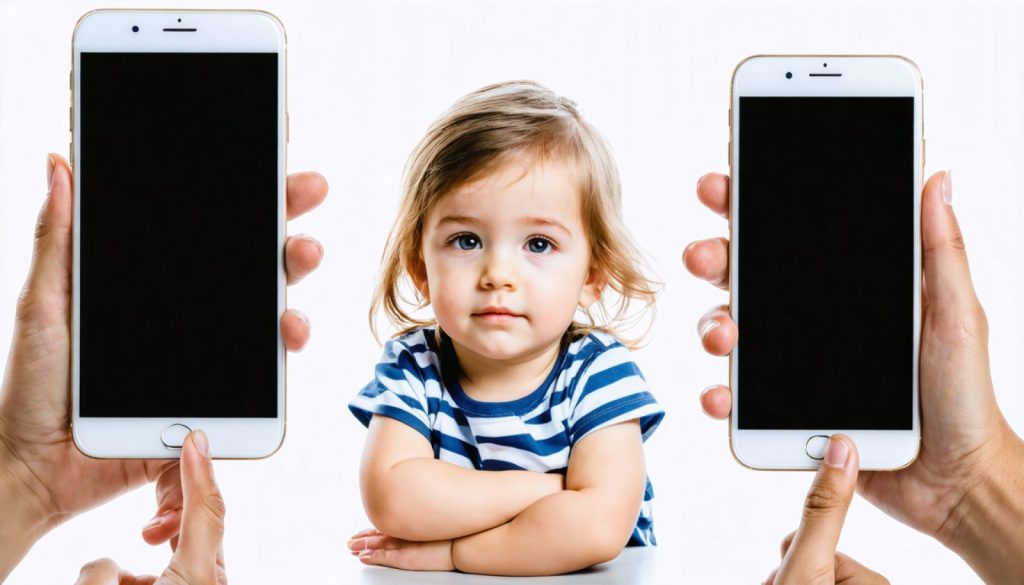
- Smartphones touch every aspect of daily life, influencing fundamental decisions like family planning.
- The release of the iPhone in 2007, alongside the financial crisis, is linked to declining global birth rates.
- Anna Rotkirch highlights smartphones’ role in changing life aspirations, mental health, and romantic relationships.
- People increasingly pursue diverse aspirations over the traditional path to parenthood, spurred by constant digital engagement.
- Social media can both encourage “baby fever” and promote anti-natal sentiments, affecting family planning attitudes.
- Screen time is associated with mental health issues, loneliness, and relationship strains, impacting fertility rates.
- Understanding the digital world’s influence on personal decisions is essential for addressing demographic shifts.
- Reexamining smartphone use can help address the fertility conundrum influenced by technology’s subtle impact.
In our hyper-connected world, the pervasive presence of smartphones seems to touch every aspect of daily life—from how we communicate to the choices we make about the future. One profound yet often overlooked impact of these devices is their potential influence on one of life’s most fundamental decisions: whether, when, and how many children to have.
As birth rates decline globally, some experts point to the 2007 release of the iPhone as a pivotal event alongside the financial crisis. Anna Rotkirch, a Research Professor at Finland’s “Väestöliitto” Population Union, recently highlighted how the smartphone revolution might be contributing to the “baby bust” through shifts in life aspirations, mental health, and romantic relationships.
Consider the modern life template: no longer is the path to parenthood a linear journey; it competes with myriad other aspirations. Individuals find themselves captivated by the allure of “other interesting things”—a new trend identified by Rotkirch’s Finnish Family Barometer. In 2015, those who expressed disinterest in having children had tripled compared to previous decades. The omnipresence of screens offers continuous access to a vast world beyond one’s immediate environment, reshaping what people consider achievable or desirable.
Additionally, smartphones have redefined emotional landscapes through social media. Studies by psychologists Katherine Nelson-Coffey and Lisa Cavenaugh revealed that exposure to images of happy families could spark “baby fever,” a heightened desire to have children. Yet, online spaces are also rife with anti-natal sentiments—fueled by viral TikTok trends—emphasizing parenting’s challenges. For some, these images cement ambivalence about starting a family.
Rotkirch also underscores the psychological effects linked to screen time. The negative impact of mental health issues associated with smartphone use—an area extensively explored by social psychologist Jonathan Haidt—correlates with lower fertility. The rise of loneliness in an increasingly interconnected world further complicates relationship-building, critical for family formation.
Finally, the incursion of screens into intimate spaces can strain romantic partnerships. Rotkirch’s findings show screen time can detract from relationship satisfaction, diminishing sexual activity and time spent with partners. It’s not merely anecdotal; it’s backed by research indicating how the ubiquity of digital devices can invisibly, yet profoundly, alter relationship dynamics.
The smartphone’s presence, as mundane as it seems in today’s tech-saturated reality, is far from benign in its consequences. As societies face drastic shifts in demographic structures, understanding the underlying causes beyond the economic and environmental is crucial. Reflecting on how digital engagement molds crucial personal decisions could be key to addressing the fertility conundrum we currently face. In a world where technology shapes reality in subtle yet sweeping ways, perhaps it’s time to reexamine the devices in our pockets—not just as tools of convenience, but as quiet influencers of destiny.
Is Your Smartphone Influencing Your Life’s Most Important Decisions?
How Smartphones Reshape Life’s Big Decisions: A Comprehensive Analysis
In today’s connected world, smartphones permeate virtually every aspect of our lives, subtly influencing decisions as significant as whether to start a family. As global birth rates decline, some experts suggest that the widespread adoption of smartphones, coinciding with major events like the financial crisis and the iPhone’s launch in 2007, might be contributing to this trend. Anna Rotkirch, a Research Professor at Finland’s Väestöliitto Population Union, highlights how smartphones impact life aspirations, mental health, and romantic relationships, all vital to family planning.
Exploring the Smartphone Impact on Parenthood
Smartphones have transformed the traditional path to parenthood. The allure of social media, endless information, and new lifestyle aspirations vie for attention, creating a competing narrative against the desire to start a family. For example, Rotkirch’s Finnish Family Barometer indicates a threefold increase in individuals disinterested in having children from previous decades.
How Social Media Influences Family Planning
Social media plays a dual role; it amplifies both the desire and aversion to parenthood. Studies by psychologists Katherine Nelson-Coffey and Lisa Cavenaugh show that images of happy families can inspire “baby fever.” Contrastingly, anti-natal sentiments and parenting challenges, highlighted by viral TikTok trends, foster ambivalence about starting a family.
The Mental Health Connection
Smartphone-induced mental health issues, extensively studied by social psychologists like Jonathan Haidt, correlate with lower fertility rates. Despite interconnectedness, there’s rising loneliness, complicating relationship building crucial for family formation.
Impact on Romantic Relationships
Screens invading intimate spaces create pressures on romantic partnerships. Rotkirch’s findings indicate diminished relationship satisfaction and reduced sexual activity due to excessive screen time. The omnipresence of digital devices subtly alters relationship dynamics, affecting decisions like starting a family.
Pressing Questions & Answers
– Are smartphones solely responsible for declining birth rates?
While smartphones contribute, other factors such as economic pressures, lifestyle choices, and societal changes play a significant role.
– How does smartphone use affect mental health and fertility?
Screen time is linked to mental health issues like depression and anxiety, which can affect fertility indirectly through stress and hindered relationship dynamics.
– Can reducing screen time improve romantic relationships?
Yes, limiting screen time fosters better communication and satisfaction within relationships, potentially enhancing intimacy and partnership longevity.
– What can individuals do to mitigate smartphone impact on family planning?
Establish screen-free zones, prioritize face-to-face interactions, and be mindful of digital content consumption.
Actionable Recommendations
– Set Boundaries: Designate certain times or areas of your day as screen-free zones to nurture personal relationships.
– Digital Detox: Regularly unplug from social media to focus on real-world experiences and genuine connections.
– Mindful Consumption: Assess and curate the digital content you engage with, aiming for positive and realistic narratives around lifestyle choices.
Conclusion
Smartphones aren’t just tools of convenience but also quiet influencers of major life decisions. By understanding their impact on birth rates, mental health, and relationships, we can navigate these challenges thoughtfully. Reflecting on our digital engagements can be key to shaping a balanced future. For more insights on digital wellness, visit the Väestöliitto website.
Exploring the intersection of technology and life choices is crucial as societies face demographic shifts. Our smartphones affect us more profoundly than we often realize—it’s time to reexamine their role in our lives.



